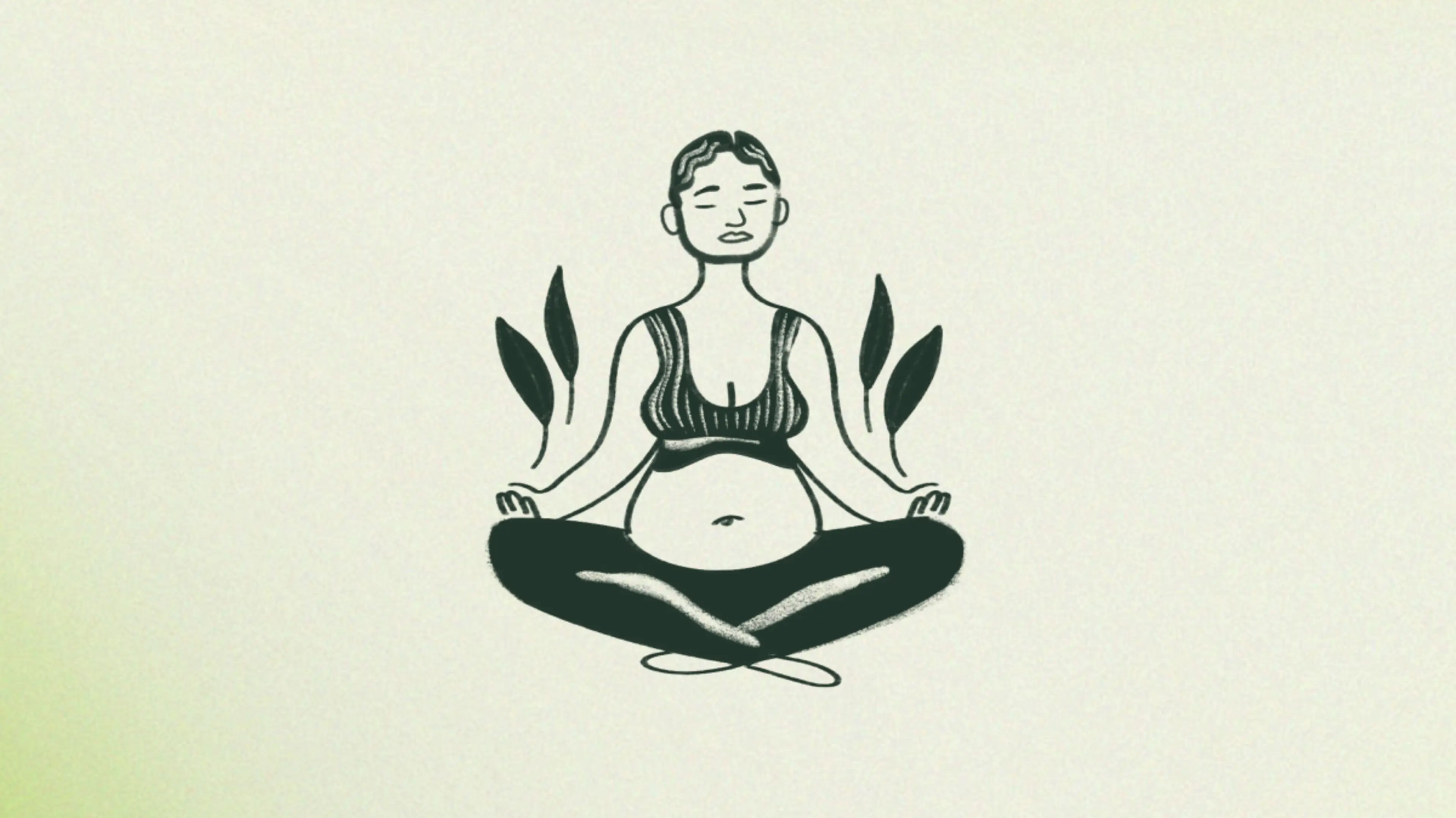With each of my two pregnancies—I had a boy first, then a girl three years later—I could have been convinced to wait until they were born to find out the sex. My husband, on the other hand, was squarely in the “I want to know as soon as possible” camp. Since he was so excited and I didn’t feel strongly either way, we decided to do a small gender reveal with our families following each of the 20-week anatomy scans.
Before each of the parties, I had a gut feeling about what I was having. (For the record, I was right both times which, funny enough, research shows1 may be an actual thing.) But I can’t say that my body felt particularly different early in the two pregnancies. Sure, I had more morning sickness when I was pregnant with my daughter, which tracks with the old wives’ tale that higher levels of nausea indicate a girl, but overall, I was peeing a lot, eating all the bagels, and plenty tired with both.
But if you’ve been around enough family—or, let’s be honest, even strangers in the grocery store—you know they’ll freely share their unsolicited thoughts on what you could be having based on everything from how you’re carrying to how you look.
But are these “signs” just myths or is there actual evidence that will give you a sneak peek into whether you’re having a boy or girl if you know what to look out for? Here’s what I found out.
Can You Tell if You’re Carrying a Boy or a Girl?
As you probably guessed, you can’t. “There are no things that a woman will feel or changes in her body that point to having a boy versus a girl,” says Shivani Patel, MD, a specialist in maternal-fetal medicine and an associate professor in the Department of Obstetrics and Gynecology at UT Southwestern. “There’s just no association that’s been made with pregnancy changes and gender.”
Still, myths abound. Take for instance the claim that if you have a lot of heartburn, you’re having a girl. As Dr. Patel explains, heartburn in pregnancy is primarily caused by high levels of progesterone, the relaxing of the sphincter between the esophagus and the stomach (this makes it easier for acid to pass), and your expanding bump.
“But there is no scientific data that suggests that you have higher levels of progesterone with a girl versus a boy or that that sphincter is more relaxed with a girl versus a boy,” she says.
Same goes for the idea that increased morning sickness points to a girl. Dr. Patel explains that morning sickness is primarily due to an uptick in hormone levels, particularly HCG and estrogen. But if you measure hormone levels, there’s no difference between those carrying a male or female fetus, she notes.
In a 2020 study2 that included over 2,000 pregnant women, researchers looked at self-reported data and found that those carrying a girl had a higher first-trimester incidence of morning sickness. Earlier research3 also showed that women hospitalized with hyperemesis gravidarum, or severe morning sickness, were also more likely to be having a girl.
However, Dr. Patel cautions that just because there’s a correlation, it doesn’t mean it’s a direct cause. In other words, just because you’re carrying a girl doesn’t mean it’s going to cause you to experience extreme morning sickness—or even simply to have more nausea.
There has also been research looking into the truth behind common myths. In a study in the journal Birth1 , for instance, researchers found that the shape of the belly had nothing to do with the baby’s sex, which goes against the idea that if you’re carrying wide you’re having a girl and if you’re carrying narrow it’s a boy.
A 2020 study4 using data from a questionnaire discredited 10 different myths—from the one about morning sickness to the idea that carrying high means you’re having a girl. They did find one difference, though: women pregnant with boys were more likely to say their hair was “glossier.” Researchers couldn’t offer a definitive reason but pointed to testosterone levels as a possible link.
Overall, Dr. Patel explains that these tales were primarily used “in a time when we didn’t have the technology and the science we do now as a way of trying to predict gender.”
A Better Way: Medical Testing
Dr. Patel has seen a shift in recent years in how often patients and their families talk to her about these myths and old wives’ tales. She says that ten or 15 years ago, if a patient’s mom or grandmother came to an appointment, they’d often say things like, “The baby must be a girl because their loved one was having lots of heartburn. Didn’t Dr. Patel agree?” But now that there’s testing to find out the gender as early as 10 weeks, these conversations don’t happen as often.
“It’s almost like there isn’t enough time for them to develop symptoms to try to even realize these myths exist because they’re not waiting until 20 weeks anymore to find out what they’re having,” she says.
That’s where testing comes in. There are two that are commonly used—one is a blood test, which can be done in the first trimester, and the other is the more traditional ultrasound that happens in the second trimester.
First-trimester screening
In the first trimester—as early as 10 weeks—you can have what’s known as a cell-free DNA (or cfDNA) screening5 . This is a screening tool that’s used to check for chromosomal abnormalities, including Down Syndrome, Trisomy 18, and Trisomy 13. Since it tests free-floating fetal DNA, the test can also indicate a baby’s sex.
Initially, the screening was primarily used for women who were at high risk, like those with a family history of these conditions, but since about 2018, it’s been offered to pregnant people universally, says Dr. Patel.
“I think the important part here is for women to know that it’s not just a gender test,” she explains. “It’s going to give them other information and they may not want that information.” Providers have to share the genetic testing results with you, so she advises making sure you’re ok with that before moving forward.
She does note that there are some tests you can buy that use the same basic technology but will let you know only the baby’s gender. However, she cautions that these are commercial products and not medical tests. Her advice here is to talk to your provider first.
Second-trimester ultrasound
This is the more traditional test, which is done via ultrasound anytime between 18 and 20 weeks. That’s when providers will do what Dr. Patel calls a “head-to-toe assessment” of the baby, including looking at the sex.
“If women want to know, we’ll tell them. And if they don’t want to know, we won’t tell them,” says Dr. Patel. (She does note that if there is a potential reproductive system abnormality, they will let you know regardless.)
You may have also heard of what’s known as the Ramzi theory, which theorizes that gender can be determined by doing an ultrasound and looking at the placement of the placenta at just six weeks. But there’s no other research to actually back this up—and there was no peer review process6 for the original work, either.
Your Provider Can Help You Make the Best Call
So while there are no signs to tell if you’re having a boy or a girl, Dr. Patel says there’s no reason you can’t enjoy speculating.
“I think [these myths] are a fun way to get family involved and for couples to have some lightheartedness to pregnancy, because I think sometimes pregnancy can be incredibly stressful and a time of great worry,” she says.
Ultimately, when it comes to finding out the sex of your baby, Dr. Patel says that there are really great choices, whether you want to know right away or you prefer waiting until delivery.
“I think we have good options all along the way,” she says. “I think just having a conversation with your healthcare provider can help you determine what’s the right path to find out the information that you want at the right time in pregnancy for you and your family.”
Read Next: It’s Okay to Have Gender Disappointment—How to Handle It










